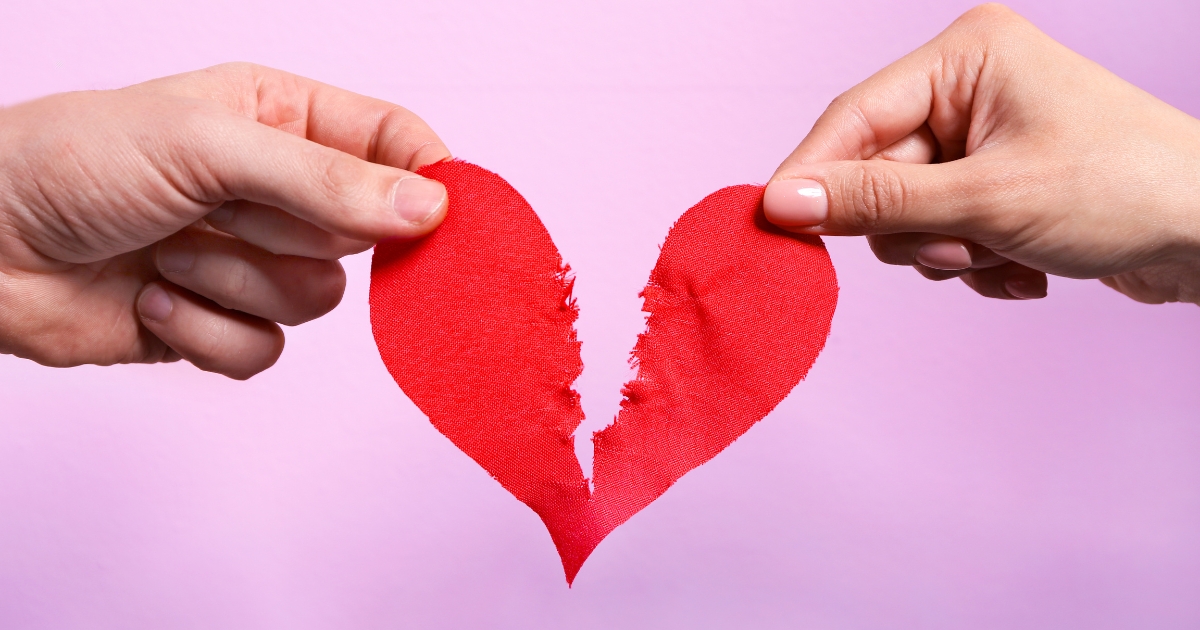
Why Breakups Hurt So Much: The Science Behind Heartbreak
Your relationship has ended, and you feel like your world has been turned upside down. The pain cuts deep, making it hard to eat, sleep, or even think straight. If you’re wondering why breakups hurt so intensely, you’re not alone.
There’s real science behind the overwhelming emotions you’re experiencing. Understanding the biological and psychological reasons for heartbreak can help you navigate this difficult time with more self-compassion and hope for healing.
The Brain on Heartbreak: When Emotional Pain Becomes Physical
The science of heartbreak reveals something fascinating: your brain processes emotional pain from breakups in the same way it handles physical injuries. When researchers used brain imaging technology to study people going through breakups, they discovered that the same neural pathways light up during heartbreak as when someone experiences physical pain.
This explains why people often describe heartbreak with physical terms like:
- “My heart is broken”
- “I feel like I’ve been punched in the gut”
- “It’s like someone stabbed me in the chest”
The anterior cingulate cortex, the brain region responsible for processing pain, becomes highly active during rejection. For mature singles who may have invested years or decades in a relationship, this neural response can feel even more intense. Your brain is literally telling you that losing this connection is a threat to your well-being.
Studies show that taking over-the-counter pain medication can actually reduce the emotional pain of rejection. This isn’t because you should medicate your feelings, but it demonstrates just how real and physical the pain of heartbreak truly is.
The Chemical Rollercoaster: How Love Hormones Create Withdrawal
When you fall in love, your brain becomes flooded with feel-good chemicals like dopamine, oxytocin, and norepinephrine. These create the euphoric feelings of new love and help bond you to your partner. Oxytocin, often called the “love hormone,” is released during physical touch and intimate moments, creating deep emotional connections.
During a breakup, these chemical levels plummet suddenly. Your brain, which had become accustomed to regular hits of these natural mood boosters, goes into withdrawal. This chemical crash explains many common breakup symptoms:
- Anxiety and restlessness
- Depression and sadness
- Difficulty concentrating
- Changes in appetite and sleep patterns
For people over 50, hormonal changes related to aging can make this chemical disruption feel even more pronounced. The combination of natural hormonal shifts and the sudden absence of love chemicals creates a perfect storm of emotional pain after breakup.

Why Breakups Hurt More as We Age: Attachment and Identity
Research shows that the way we handle breakups often relates to our attachment style – patterns of how we connect with others that develop early in life. There are three main types:
Secure attachment (about 60% of people): Generally handle breakups better and recover more quickly
Anxious attachment (about 20% of people): Experience more intense fear of abandonment and take longer to heal
Avoidant attachment (about 20% of people): May seem to recover quickly but often struggle with deeper emotional processing
Mature singles often face unique challenges because longer relationships create deeper emotional dependencies. When you’ve shared decades with someone, your identities become intertwined in complex ways. You’ve built shared routines, made joint decisions, and created a life together.
The loss of this shared identity can feel devastating. Research indicates that people who have been in relationships for over 10 years report feeling “lost” or “like half a person” after breakups. This isn’t weakness – it’s a natural response to losing something that became central to your sense of self.
The Evolutionary Purpose of Heartbreak
From an evolutionary perspective, the intense pain we feel during breakups served an important survival function for our ancestors. Humans are social creatures who historically needed their tribe to survive. Being rejected or abandoned by the group could literally mean death.
This explains why rejection activates our brain’s alarm system so intensely. Your nervous system can’t distinguish between being left behind by your prehistoric tribe and being dumped by your modern-day partner. Both trigger the same survival response.
Studies show that social rejection activates the sympathetic nervous system, flooding your body with stress hormones like cortisol. This biological response explains why you might experience:
- Racing heart
- Sweating palms
- Difficulty breathing
- Feeling like you’re in danger
For older adults re-entering the dating world, this evolutionary wiring can feel particularly challenging. The fear of being alone may feel more acute when you’re facing the possibility of spending your golden years solo.
The Loss of Future Dreams and Shared History
One aspect of the science of heartbreak that researchers have identified is the grief we feel for our imagined future. When you’re in a long-term relationship, you don’t just lose the person – you lose all the plans, dreams, and expectations you had built together.
Psychologists call this “ambiguous loss” – mourning something that was never concrete but felt very real. For mature singles, this might include:
- Retirement plans you made together
- Travel dreams you shared
- Family traditions you created
- Financial security you built as a team
Brain imaging studies show that thinking about your lost future activates the same regions involved in physical pain and addiction withdrawal. This is why breakups can feel like you’re grieving a death – in many ways, you are.
The Memory Factor: When Shared History Amplifies Pain
Long-term relationships create extensive shared memory networks in your brain. Every location, song, smell, or activity connected to your former partner can trigger emotional responses. Neuroscientists have found that these memory triggers can instantly transport you back to the emotional state you were in when those memories were formed.
For people who have been together for years or decades, these memory networks are particularly complex and deeply embedded. This explains why a simple song on the radio or the smell of their cologne can send you spiraling emotionally, even months after the breakup.
Research shows it takes an average of 11 weeks to start feeling better after a breakup, but for long-term relationships, this timeline often extends significantly. There’s no “normal” timeline for healing – your brain needs time to literally rewire itself and create new neural pathways that don’t center around your former partner.
Moving Forward: Hope for Healing
Understanding why breakups hurt so much isn’t just academic – it’s deeply practical. When you know that your pain has biological roots, you can treat yourself with more compassion. You’re not weak or broken; you’re human.
The same neuroplasticity that made your brain adapt to love can help it adapt to life after love. With time and often professional support, you can build new neural pathways, create fresh memories, and open your heart to love again.
Remember that healing isn’t linear, and it’s never too late to find love again. Many people find deeper, more meaningful connections later in life, armed with the wisdom and self-knowledge that comes from experience.
Your heartbreak is real, valid, and temporary. The science shows us that while the pain is intense, the human capacity for healing and forming new connections is even stronger.











